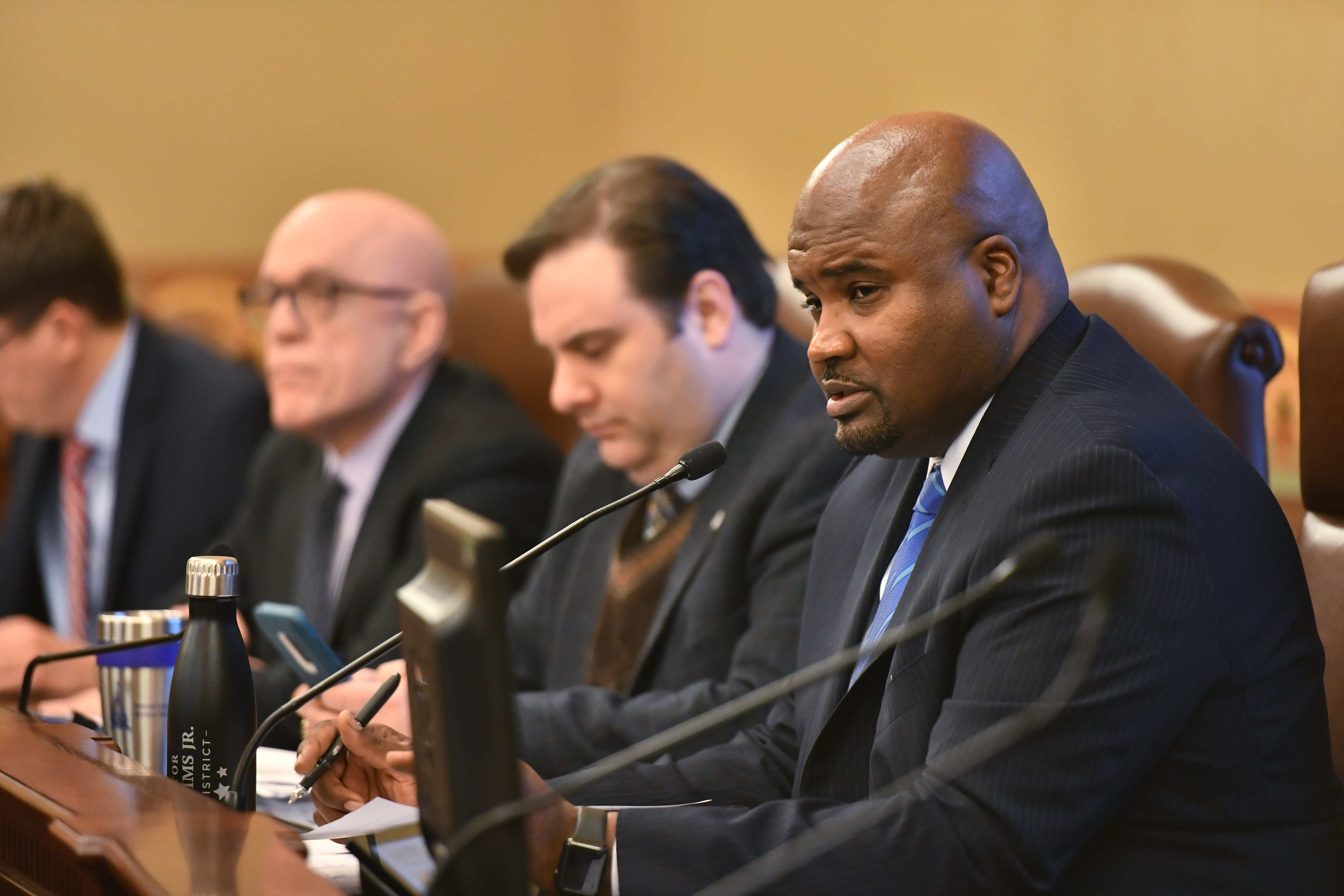
SPRINGFIELD — State Senator Elgie R. Sims, Jr. (D-Chicago) today congratulated students at a Sauk Village elementary school on winning a national kindness award.
Wagoner Elementary School in Community Consolidated School District 168 in Sauk Village, Illinois was one of over 650 schools from across the country that registered for the Fall 2019 cohort of the Teach Kindness Challenge.
“Now the nation knows what I already knew about Wagoner Elementary students and teachers. They are a stellar bunch who consistently go above and beyond to achieve results,” Sims said. “I am so incredibly proud of their efforts to spread kindness, which the world could always use more of.”
The “Teach Kindness” initiative is a national social-emotional learning program organized by Stand for Children that provides high-quality classroom lessons from national experts.
Wagoner has been selected as the 2019 National Winner of the Teach Kindness Challenge, a national recognition that carries a $5,000 credit at DonorsChoose.org.
SPRINGFIELD—State Senator Elgie R. Sims, Jr. (D-Chicago) released the following statement following the governor’s budget address on Wednesday:
“I am pleased the governor is renewing his commitment to provide a quality education for our young people.
“I support his pledge to increase investments in P-12 schools and MAP Grants for college students. These resources are crucial to set students on a path toward success.
“The proposed budget is a great foundation to pass a responsible, realistic and balanced budget.”

SPRINGFIELD—Members of the Joint Commission on Ethics and Lobbying Reform heard feedback from witnesses on rules for state officials and employees in an effort to determine best practices and close any possible loopholes.
“We must address the crisis of confidence in our government by holding state leaders and employees to the highest of standards,” said State Senator Elgie R. Sims, Jr. (D-Chicago), who co-chairs the commission. “That includes, reviewing the rules and seeking input to find solutions which will hold bad actors who betray the public’s trust accountable.”
At the hearing, witnesses from the Secretary of State’s Office, Attorney General’s Office, Comptroller’s Office, Common Cause, Change Illinois, the Better Government Association and other advocacy groups testified.
The Executive Inspector General and Legislative Inspector’s General also participated in the hearing. The Executive Inspector General is an independent state agency that investigates misconduct of the executive branch and state agencies, such as the Department of Transportation, Department of Children and Family Services and Department of Agriculture. The Legislative Inspector’s General investigates complaints against members of the General Assembly and their employees.
The majority of the witnesses either must abide by the State Officials and Employee Ethics Act, or are responsible for enforcing it. For that reason, their input is crucial to bring light to any possible issues with the current ethics guidelines.
“It must be made known that individuals serving the state in any capacity will face consequences for breaking our ethics code,” said State Representative Greg Harris (D-Chicago), co-chair of the commission. “To truly restore the public’s faith in government, they need to know we are tightening our ethics and disclosure laws, including tougher enforcement.”

SPRINGFIELD, Ill. — Members of the Joint Commission on Ethics and Lobbying Reform sought input on what could have been done to prevent recent high-profile conflicts of interest and what more must be done to hold lawmakers accountable at a hearing Thursday.
“We’re here to make systemic change, close loopholes, and root out opportunities for corrupt behavior that have been identified in recent media reports and investigations,” said state Rep. Greg Harris, who co-chairs the commission. “Yesterday, the governor talked about restoring public trust and cleaning up government. He specifically talked about dealing with disclosures of conflicts of interest, revolving door laws, and limitations on lobbying. Looking around the room as the governor talked, I was happy to see he got a rousing ovation for these three items. From the House, from the Senate, from Democrats, from Republicans. That’s a very good sign for our work. But these proposals are only as good as their details, and it is our job to fill in those details.”
Brad Cole of the Illinois Municipal League and former Lt. Gov. Sheila Simon encouraged members to update and improve the financial interest disclosures legislators are currently required to file. Cole reiterated the need for more complete lobbyist disclosures, including disclosure of lobbyists being paid to influence local governments. Aside from state government, only a handful of Illinois’ nearly 7,000 units of government have any kind of disclosure requirements for those seeking to influence decision-making by public officials.
“People deserve to know that their lawmakers are voting in their communities’ best interests, not in their own interest,” said Sen. Elgie Sims, co-chair of the commission. “We look forward to continuing to engage with experts and stakeholders in these critical discussions.”
Page 29 of 47